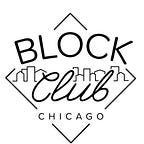Why (And How) Block Club Chicago Covers Crime
Should a neighborhood news site cover crime? We think so. Here’s why.
Hey Block Club followers,
This week, we received some questions on Twitter about why we report on crime. So, we figured we would share some of our editorial strategy regarding crime coverage here.
If you followed DNAinfo Chicago before it shut down, you probably know we covered a whole lot of crime. When the site launched in 2012, there was no public database of shootings in the city, and we heard complaints from residents who felt like they were being kept in the dark about things happening in their communities. At first, we attempted to interview the families of every murder victim in Chicago. Our goal was to humanize the victims who were often nameless and faceless on the nightly news — to let readers know that violence in the city was impacting real people with real families and real lives.
As always in media, budgets changed and reduced our ability to dive deeper into these cases. We also began to question the way crime has traditionally been covered in Chicago, and how we were taught as young reporters and editors to cover it. We had a Public Newsroom with City Bureau on the topic over the summer, and heard a range of opinions: some felt that crime should not be covered at all, others thought the use of mugshots was problematic, some said they’d like more context and more hyperlocal crime reporting.
When we launched Block Club Chicago four months ago, we made a conscious decision to do less crime coverage than we did at DNAinfo. Why? Because other outlets are doing it, because we don’t have the resources to deeply report out these stories, because we’d rather tell stories that no one else is telling than count shootings every day. We know there is more to our city and our neighborhoods than crime, and just a cursory scroll through our site reflects that.
The crime stories that readers told us they wanted to hear about were often things like garage break-ins, car thefts, muggings—crimes that they could read about and prepare for, maybe by putting a deadbolt on the garage or not leaving their patio furniture out. Residents often email or call us, asking if we can get information on shots they heard, or attempting to bring attention to an issue that they feel is being ignored by police or the city.
Crime makes up a small portion of what we cover at Block Club Chicago, and when we do tackle neighborhood-level crime stories, we do so because we believe it is a public service to notify our readers of incidents happening where they live. We covered the spree killings in Rogers Park and shared the surveillance photo of the suspect. We covered the Van Dyke verdict in a drastically different way than other outlets, focusing on the fear mongering that prompted businesses and schools to send people home early. We followed up on a tragic Logan Square murder one year later, and while the neighborhood was initially told the victim knew her killer, we found that wasn’t true. We were the first local outlet to report on the use of “bait trucks” by the CPD and Norfolk Southern Railroad Police.
The victims of now-convicted rapist Marc Winner thanked us for breaking the story in 2015, which led to more victims coming forward after seeing his mugshot and finally seeing justice after years of living in fear.
We believe crime reporting is essential to our mission to bring Chicagoans neighborhood news, but that does not mean we are not having thoughtful conversations as a staff to examine the way crime reporting has traditionally been done — and how we want to do crime reporting in the future.
Starting at DNAinfo and continuing at Block Club, we stopped using vague police descriptions of suspects due to the concern that they could lead to racial profiling. We don’t use the names of minors charged with crimes. We try to use mugshots judiciously, and we’re further examining how to use them going forward.
One criticism we received is for using only the police as sources in some crime stories. This is true in cases where a crime was reported but no one is in custody (garage burglaries, carjackings) because frankly there is rarely someone else to interview. Victims of crimes are not identified, and while we do go to the scene and talk to neighbors when we can, for a crime brief that lists the location and time of an incident, there isn’t always another source add to the piece.
When someone is named as a suspect, we make every effort to reach that person’s attorney and include their court testimony if possible.
We’re journalists, not activists, and we know we are never going to please everyone with our coverage. That is not our job. As a nonpartisan news site, our objective is to make residents of the city’s neighborhoods more informed about what is going on around them — to let people know who is running for office, how they can help a neighbor, tell them about a new cafe opening or a how a new school policy is impacting parents. We show up to development meetings, to local school council meetings and, yes, to community policing meetings.
We’re making steps to be more responsible in our coverage of these issues every day. No, we aren’t perfect, but we are actively trying to be better.
And to that end, we’re listening: newsroom@blockclubchi.org, @BlockClubChi and here on Facebook.
Thank you for reading and for supporting our mission.
